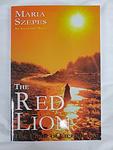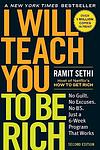The Greatest Hungarian, Russian Books From 1940 to 1949
Click to learn how this list is calculated.
This list represents a comprehensive and trusted collection of the greatest books. Developed through a specialized algorithm, it brings together 291 'best of' book lists to form a definitive guide to the world's most acclaimed books. For those interested in how these books are chosen, additional details can be found on the rankings page.
Genres
Countries
Date Range
Reading Statistics
Click the button below to see how many of these books you've read!
Download
If you're interested in downloading this list as a CSV file for use in a spreadsheet application, you can easily do so by clicking the button below. Please note that to ensure a manageable file size and faster download, the CSV will include details for only the first 500 books.
Download-
1. Embers by Sandor Marai
"Embers" is a novel about two old friends who reunite after being apart for 41 years. The story takes place in a secluded castle in the Carpathian Mountains, where the two men confront each other about a long-kept secret that has kept them apart. The narrative delves into themes of friendship, love, loyalty, and betrayal, while exploring the intricate dynamics of human relationships. The novel is a poignant examination of the nature of time and memory, and the ways in which they can shape and define our lives.
-
2. The Real Life of Sebastian Knight by Vladimir Nabokov
"The Real Life of Sebastian Knight" is a novel centered around the protagonist's quest to understand and write a biography about his deceased half-brother, a famous author. However, as he delves deeper into his brother's life, he encounters numerous obstacles and confusions, including misleading information, false leads, and the challenge of distinguishing between the man and his literary persona. Ultimately, the protagonist's journey becomes a profound exploration of identity, truth, and the blurred line between fiction and reality.
-
3. Dark Avenues by Ivan Bunin
"Dark Avenues" is a collection of short stories that delve into the complex and often shadowy aspects of human love and relationships. Set primarily in Russia before the Bolshevik Revolution, the tales explore the passions, betrayals, and yearnings of a diverse cast of characters, from aristocrats to peasants. The author's rich prose and deep psychological insight paint a vivid picture of the era and the timeless nature of love's joys and sorrows. Each story in the collection stands as a testament to the author's mastery of the short story form and his ability to capture the nuances of the human heart.
-
4. The Return and Other Stories by Andrey Platonov
"The Return and Other Stories" is a collection of short narratives revolving around the theme of human struggle and resilience in the face of oppressive political regimes and harsh living conditions. The stories, set against the backdrop of Soviet Russia, explore the complexities of human nature, the power of hope, and the resilience of the human spirit. The characters, often ordinary people, grapple with existential questions and the harsh realities of life, providing a poignant critique of the socio-political landscape of the time.
-
5. The Red Lion by Mária Szepes
"The Red Lion" is a sweeping historical and esoteric novel that follows the journey of a man through various reincarnations as he seeks the secret of immortality and ultimate wisdom. Set against the backdrop of different eras, the protagonist's quest is driven by his encounter with the mythical Red Lion, an alchemical symbol of enlightenment and transformation. As he navigates the trials of life and the complexities of his inner world, the narrative delves into themes of karma, spiritual growth, and the eternal struggle between the forces of light and darkness within the human soul. The story weaves together philosophy, mysticism, and the relentless pursuit of a higher understanding of life and the universe.
-
6. Guilt by Laszlo Németh
The novel explores the psychological and moral complexities of guilt through the story of a young doctor who, after accidentally causing a patient's death, is consumed by his own conscience and the judgment of his small community. As he grapples with the weight of his actions and the expectations of society, the protagonist's inner turmoil leads him to question the nature of guilt, responsibility, and redemption. Set against the backdrop of early 20th-century Hungary, the narrative delves into the human psyche, examining how personal and collective guilt can shape one's identity and destiny.
Reading Statistics
Click the button below to see how many of these books you've read!
Download
If you're interested in downloading this list as a CSV file for use in a spreadsheet application, you can easily do so by clicking the button below. Please note that to ensure a manageable file size and faster download, the CSV will include details for only the first 500 books.
Download




